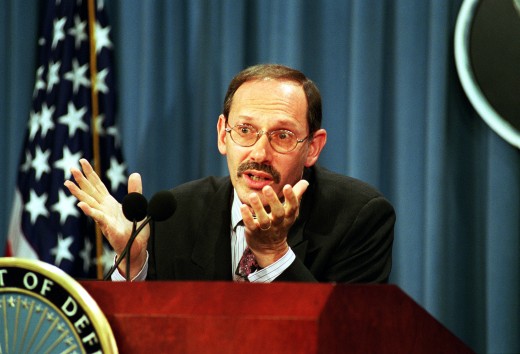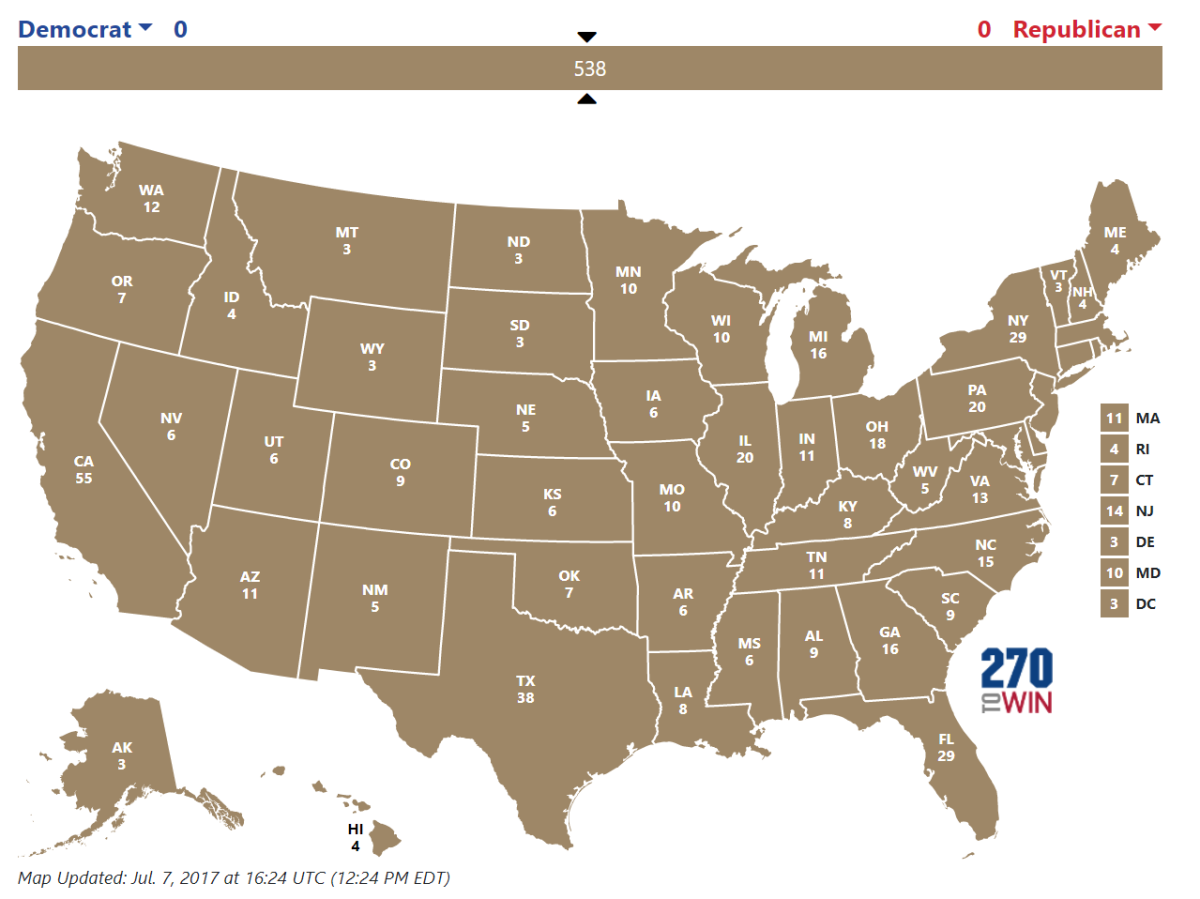George W. Bush's Dirty Business
July 10, 2011

Road Kill
At my last job I drove an 18-foot box-truck. A truck that size moving down the highway at 60 mph with a flat windshield can be devastating to aviating critters. Though it was almost entirely bugs that met their doom on my windshield, once, it was a bird. I felt bad about it. It was such a sickly thud it made before flying off into oblivion.
I didn’t feel bad enough to lose sleep or anything, but I did feel bad enough to give it some thought. Had I not been paying attention? Is there anything I could have done to avoid it? There really wasn’t – short of not driving the truck at all which isn’t really an option.
Vulcans
Dov. S. Zakheim, a former foreign policy advisor for George W. Bush, and one of the so-called Vulcans, wrote an article about his experience.1 In it he expresses disappointment in Bush’s failed Afghanistan policy, but he does so with the sound of someone who just ran a bird down in a truck, not someone who has left a huge pile of dead people in his wake. The failure, he says, wasn’t for a lack of “good intentions” or “moral debasement”, but essentially due to “deficiencies of management”. Which sounds fine until he mentions some of the factors which contributed to mismanagement that include, the “inherent novelty and difficulty of the challenges the administration faced” and “deficiencies of …understanding, and forethought”.
Moral Debasement
We CHOSE to initiate this war. Novelty and challenge are not excuses, they are the reasons NOT to go to war in the first place. Mismanagement is when a plan is developed, with understanding and forethought, and then not carried out. Not ever having understanding and forethought, and then carrying out a plan which kills tens of thousands of people is NOT mismanagement. It IS moral debasement.
I know there are people who can flatten a bird in a truck and not really care, because they feel no real connection to the value of that life, but I really have no idea how people disconnect themselves so completely from human beings that they can plow through fields of them and at the end of the day have nothing else to say but critiques about bad management.
I could understand if this was an article ABOUT management, some wonkish foreign policy management article, and devoid of moral commentary - but it isn’t. The article is even called, “Confessions of a Vulcan,” and by the third paragraph in he is expressing pride in his service. Pride? Really? I can see him believing he did the best he could and worked hard at the task given to him, but how can he be proud of service to an administration, that he himself says implemented a failed policy which caused such significant death and destruction.
...are doomed to repeat it.
It is interesting because Vietnam really wasn’t that long ago. It was a war for which we supposedly learned some important lessons. Take the words of General Maxwell Taylor, a main architect of the early war, who said afterwards, “until we know the enemy and know our allies and know ourselves, we'd better keep out of this kind of dirty business. It's very dangerous.”
Sound familiar?
Or take this lesson learned from the Vietnam War:
Reliance on massive firepower and technological superiority and the ability to marshal vast logistical resources have been hallmarks of the American military tradition. Tactics have often seemed to exist apart from larger issues, strategies, and objectives. Yet in Vietnam the Army experienced tactical success and strategic failure. The rediscovery of the Vietnam War suggests that its most important legacy may be the lesson that unique historical, political, cultural, and social factors always impinge on the military. Strategic and tactical success rests not only on military progress but on correctly analyzing the nature of the particular conflict, understanding the enemy's strategy, and realistically assessing the strengths and weaknesses of allies. A new humility and a new sophistication may form the best parts of the complex heritage left the Army by the long, bitter war in Vietnam. (by Vincent H. Demma from American Military History).2
I'm sorry to put in such a long quote, but every single sentence seemed so appropriate to me. So, how did we so quickly lose the lesson of humility and sophistication? One potential obvious answer is from the brilliant and rapid success of the military in the Gulf War. But, the Gulf War, as a nearly pure military operation, is a terrible metric to use for other hostilities, since it did not contain the messy political and cultural considerations that are typically present.
Shock and Awe
Still, it is easy to see how this confident supremacy could lead to the instant win mentality contained in the policy of shock-and-awe that was used in the Iraq War and to some extent the invasion of Afghanistan. It might seem to, but one of the authors of shock-and-awe, Harlan K. Ullman, disagrees.3 One of the main components of shock-and-awe is total knowledge, which according to Ullman requires going beyond the military’s situational awareness and recognizing that “cultural understanding [is] as crucial as the enemy order of battle”. He considers the “little or no cultural understanding” to be the “grave and potentially fatal weakness in U.S. strategy in Afghanistan and Iraq and before that in Vietnam.”
Another major component of shock-and-awe is operational brilliance. And while, Ullman acknowledges the military's "dazzling" performance, he notes that "Where the real problems have arisen are in the whole-of-government approaches to nonmilitary tasks and, of course, in operations where there was no enemy army or air force to defeat and war was about the people and securing their support."
The Afghanistan and Iraq campaigns, says Ullman, "departed profoundly" from the true intent of shock-and-awe, because they did not produce political and strategic goals, prior to beginning the campaigns, and without those goals it was impossible to assemble the military AND non-military tools that would be required to achieve them.
So if it wasn't shock-and-awe what was it? There were people in the Bush administration who are familiar with shock-and-awe. There were people who knew the lessons of Vietnam. They just choose to ignore them. They believed in a fantasy—some magical perverted version of shock-and-awe, that at best only amounted to half of what it should have been. Bush was like a surgeon amputating a leg, completely unprepared to than stop the bleeding.
Semantics
Zakheim suggests that rebuilding Afghanistan was a legitimate possibility, a belief he seemed to hold based upon the significant resources which were initially available for the task. Of course there still wasn’t a plan or any cultural understanding, so even with the resources he may have been being overly optimistic. Didn’t matter either way, though, since those resources didn’t last and were instead diverted to the invasion of Iraq. “This lack of focus on Afghanistan is a truly tragic outcome,” he says, but again this is just more dishonest semantics. The lack of focus on Afghanistan was a truly tragic DECISION. He later calls this lack of focus “benign neglect,” but invading a nation with the promise of rebuilding it and than neglecting that promise is not benign at all. In fact I would say it is fairly malicious.
He then goes on to lay some vague blame upon the tendency of American policymakers to focus on the issues of immediate importance, but that political environment is as he admits nothing new. The political environment in which you implement policy has to be part of any policy which is implemented. Doesn’t it? It isn’t something that you can later use as an excuse for why you failed.
Confession?
At first glance, Zakheim’s “confession” seems like an honest, and somewhat regretful admission, but I have a hard time really believing it. For a person in his position it seems far too naïve: the lessons of Vietnam were not abstract or distant, lessons learned and mistakes made by the Russians in Afghanistan were also readily available, the policy of shock and awe and the proper way to conduct it are extensively and clearly established, and the difficulties of maintaining focus and resources on a long-term problem are obvious. So, there wasn’t really anything novel at all about the situation, or anything which should have been surprising to anyone who had bothered to really look in the first place.
Notes
1. Zakheim, Dov S. "Confessions of a Vulcan." Foreign Policy. 13 May 2011. Web. 9 Jul 2011. <http://www.foreignpolicy.com/articles/2011/05/13/confessions_of_a_vulcan>.
2. Demma, Vincent H. “Chapter 28, The U.S. Army in Vietnam.” American Military History. Washington, DC: Center of Military History, United States Army, 1989. ibiblio. Web. 9 Jul 2011.
3. Ullman, Harlan K. "Shock and Awe a Decade and a Half Later: Still Relevant, Still Misunderstood." Prism 2.1 (2010): 79-86. Web. 9 Jul 2011. <http://www.ndu.edu/press/lib/images/prism2-1/Prism_79-86_Ullman.pdf>.







